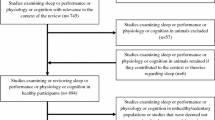Abstract
This investigation examined the influence of pre-exercise hydration status, and water intake during low intensity exercise (5.6 km · h−1 at 5% gradient) in the heat (33° C), on plasma testosterone (TEST), cortisol (CORT), adrenaline (A), and noradrenaline (NA) concentrations at baseline (BL), pre-exercise (PRE), and immediately (IP), 24 h (24 P), and 48 h postexercise (48 P). Ten active men participated in four experimental treatments. These treatments differed in preexercise hydration status [euhydrated or hypohydrated (HY, −3.8 (SD 0.7)% body mass)] and water intake during exercise (water ad libitum or no water intake during exercise, NW). There were no significant changes in TEST, CORT, or A concentrations with time (BL, PRE, IP, 24 P, and 48 P), or among treatments. However, significant increases from BL and PRE plasma NA concentrations were observed at IP during all four treatment conditions. In addition, HY + NW resulted in significantly higher plasma NA concentrations at IP compared to all other treatments. These results suggest that moderate levels of hypohydration during prolonged, low intensity exercise in the heat do not influence plasma TEST, CORT, or A concentrations. However, plasma NA appears to respond in a sensitive manner to these hydration and exercise stresses.
Similar content being viewed by others
References
Anakwe OO, Moger WH (1984) Beta-2-adrenergic stimulation of androgen production by cultures mouse testicular interstitial cells. Life Sci 35:2041–2047
BMDP Statistical Software Manual (1988) Dixon WJ (ed) University of California Press, Berkeley, Calif.
Brandenberger G, Candas V, Follenius M, Libert JP, Kahn JM (1986) Vascular fluid shifts and endocrine responses to exercise in the heat. Eur J Appl Physiol 55:123–129
Brandenberger G, Candas V, Follenius M, Kahn JM (1989) The influence of the initial state of hydration on endocrine responses to exercise in the heat. Eur J Appl Physiol 58:674–679
Collins KJ, Few JD, Forward TJ, Giec LA (1969) Stimulation of adrenal glucocorticoid secretion in man by raising the body temperature. J Physiol 202:645–660
Costill DL, Fox E (1969) Energetic of marathon running. Med Sci Sports 1:86–91
Cumming DC, Quigley ME, Yen SSC (1983) Acute suppression of circulating testosterone levels by cortisol in men. J Clin Endocrinol Metab 57:671–673
Dessypris A, Kuoppasalmi K, Adlerkreutz H (1976) Plasma cortisol, testosterone, androstenedione and luteinizing hormone (LH) in a non-competitive marathon run. J Steroid Biochem 7:33–37
Durnin JV, Wormersley J (1974) Body fat assessed from total body density and its estimation from skinfold thickness: measurements on 481 men and women aged from 16 to 72 years. Br J Nutr 32:77–97
Eik-Nes KB (1969) An effect of isoproterenol on rates of synthesis and secretion of testosterone. Am J Physiol 217:1764–1770
Follenius M, Brandenberger G, Oyono S, Candas V (1982) Cortisol as a sensitive index of heat-tolerance. Physiol Behav 29:509–513
Francesconi RP (1988) Endocrinological responses to exercise in stressful environments. In: Pandolf KB (ed) Exercise and sport science reviews. MacMillan, New York, pp 255–284
Francesconi RP, Maher JT, Mason JW, Bynum GD (1978) Hormonal responses of sedentary and exercising men to recurrent heat exposure. Aviat Space Environ Med 49:1102–1106
Francesconi RP, Sawka MN, Pandolf KB, Hubbard RW, Young AJ, Muza S (1985) Plasma hormonal responses at graded hypohydration levels during exercise-heat stress. J Appl Physiol 59:1855–1860
Francis KT (1979) Effect of water and electrolyte replacement during exercise in the heat on biochemical indices of stress and performance. Aviat Space Environ Med 50:115–119
Galbo H, Christensen NJ, Holst JJ (1977) Glucose-induced decrease in glucagon and epinephrine responses to exercise in man. J Appl Physiol 42:525–530
Goldman RF, Green EB, Iampietro PF (1965) Tolerance of hot, wet environments by resting men. J Appl Physiol 20:271–277
Hartung GH, Myhre LG, Tucker DM, Burns JW (1987) Hormone and energy substrate changes during prolonged exercise in the heat. Aviat Space Environ Med 8:24–28
Jezova D, Vigas M (1981) Testosterone response to exercise during blockade and stimulation of adrenergic receptors in man. Horm Res 15:141–147
Jezova D, Vigas M, Tatar P, Kvetnansky R, Nazar K, KaciubaUncilko H, Kozlowski S (1985) Plasma testosterone and catecholamine responses to physical exercise of different intensities in man. Eur J Appl Physiol 54:62–66
Kjaer M (1989) Epinephrine and some other hormonal responses to exercise in man: with special reference to physical training. Int J Sports Med 10:2–15
Melin B, Cure M, Pequignot JM, Bittel J (1988) Body temperature and plasma prolactin and norepinephrine relationships during exercise in warm environment: effect of dehydration. Eur J Appl Physiol 58:146–151
Powers SK, Howley ET, Cox R (1982) A differentiated catecholamine response during prolonged exercise and passive heating. Med Sci Sports Exerc 14:435–439
Sawka MN, Pandolf KB (1990) Effects of body water loss on physiological function and exercise performance, vol 3. In: Gisolfi CV, Lamb DR (eds) Fluid homeostasis during exercise. Benchmark Press, Indiana
Schaison G, Durand F, Mowszowicz I (1978) Effect of glucocorticoids on plasma testosterone in men. Acta Endocrinol 89:126–131
Smith JH, Robinson S, Pearcy M (1952) Renal responses to exercise, heat, and dehydration. J Appl Physiol 4:659–665
Tharp GD (1975) The role of glucocorticoids in exercise. Med Sci Sports 7:6–11
Urhaussen A, Kinderman W (1987) Behavior of testosterone, sex hormone binding globulin (SHBG), and cortisol before and after a triathalon competition. Int J Sports Med 8:305–308
Viru A (1985) Hormones in muscular activity, vol 1. Hormonal ensemble in exercise. CRC Press, Boca Raton Fla. pp 7–23
Waters Publications (1987) Plasma catecholamine analysis by electrochemical detection for use with the Waters plasma catecholamine analysis system. Waters, Millipore Corporation Milford, Mass.
Yakovlev NN, Viru AA (1985) Adrenergic regulation of adaptation to muscular activity. Int J Sports Med 6:255–265
Author information
Authors and Affiliations
Rights and permissions
About this article
Cite this article
Hoffman, J.R., Maresh, C.M., Armstrong, L.E. et al. Effects of hydration state on plasma testosterone, cortisol and catecholamine concentrations before and during mild exercise at elevated temperature. Eur J Appl Physiol 69, 294–300 (1994). https://doi.org/10.1007/BF00392033
Accepted:
Issue Date:
DOI: https://doi.org/10.1007/BF00392033




